The Story of Barzakh Café
From Mauritania to a Brooklyn, El Atigh Abba's story is one of many travels, tribulations, and triumphs—which eventually led him to open Barzakh Café
In the face of militant fundamentalism and amidst calls for conformity, one young man in Mauritania refused to yield. El Atigh Abba, born in Nouakchott, grew up in a bilingual world of Arabic and French, where his curiosity and critical thinking took root early. Today, he is the founder of Barzakh Café, a cultural hub in Brooklyn that has become a center of dialogue, diversity, and strength for North African and Middle Eastern diasporas.
El Atigh’s journey speaks to his commitment to truth-telling despite the risks. His activism began in Morocco, where, as a university student, he co-founded The Arab Critic, a blog-turned-activist forum that examined social and political issues across North Africa. This work, though groundbreaking, was fraught with danger. His group faced threats from authoritarian regimes, attacks from radical Islamists, and constant surveillance. In one instance, Moroccan secret police confiscated his camera during a protest, and in Nouakchott, radicals attacked his group at Café Tunis. These trials only deepened his resolve to push forward.
Refusing to conform, he continued advocating for freedom of speech and the right to question the status quo. His critics, threatened by his ideas, attempted to label him as an apostate, a dangerous accusation in a conservative society. They hoped that branding him as such would silence him and discredit his efforts.
“We understood there is a problem,” El Atigh reflects. “The Arab world, the Muslim world in general, has a problem with tolerance, a problem with accepting different opinions. To be a critical thinker is a rare thing.”
That rare quality made El Atigh a target. His writings challenging dogmatism earned him accusations of blasphemy and, eventually, a fatwa issued by Mauritanian clerics. In 2013, after a particularly dangerous escalation, he sought asylum in the United States, arriving with $120, little English, and an unwavering commitment to his ideals.
After landing in Athens, Georgia, as part of the Edward R. Murrow Program for journalists, El Atigh quickly found a welcoming community. But it was New York City’s energy that captured his heart. Settling in Brooklyn, he plunged into entrepreneurial and cultural activities: teaching French, curating photography exhibits, and running bodegas. He also discovered an exiled diaspora of Arabs, Kurds, Afghans, and Iranians who were homesick and eager for meaningful connections. Yet their gatherings often took place in loud bars—not exactly conducive to the deep, reflective conversations he craved.
Enter Barzakh Café. Named after the Arabic word for the liminal space between worlds, Barzakh Café offers more than a menu of chicken tajine and sambusas; it provides a space for dialogue, cultural exchange, and community. Rooted in the Sufi principles of mysticism and universal love, the café embodies El Atigh’s vision of openness. It hosts book clubs, live music, and poetry readings, creating a rare gathering place for the diaspora intelligentsia and cultural Muslims in New York. In its first few months, the café drew patrons from as far as Harlem and the Hamptons.
El Atigh has recreated the kind of open, dynamic environment he once fought for in Mauritania. The café serves as a meeting place for those eager to discuss everything from art and music to more taboo topics, offering a welcoming space for free expression.
Despite the café’s success, El Atigh’s challenges remain. The fatwa against him persists. Yet he has no regrets.
“If you believe in something and put your time and effort into doing it right, somehow the universe conspires to make it work,” he says. “Even given the challenges, I would do it all over again.”
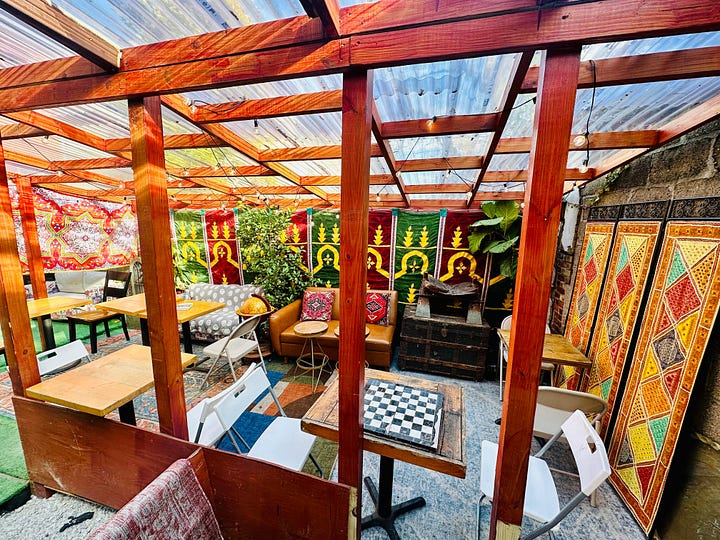
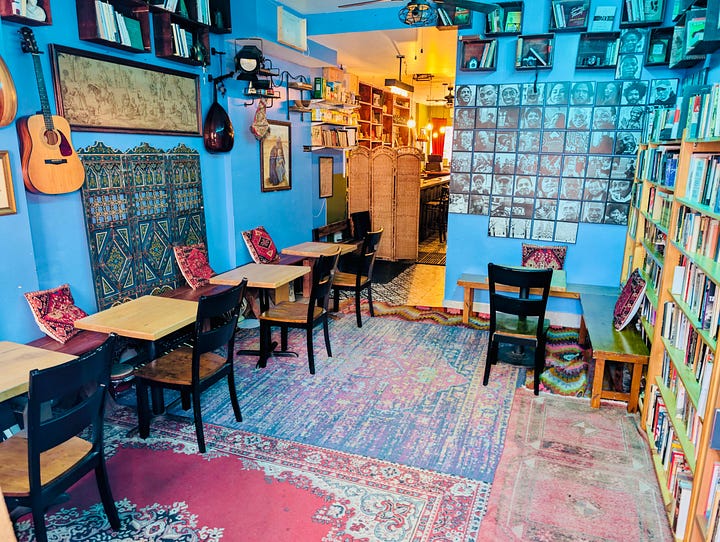

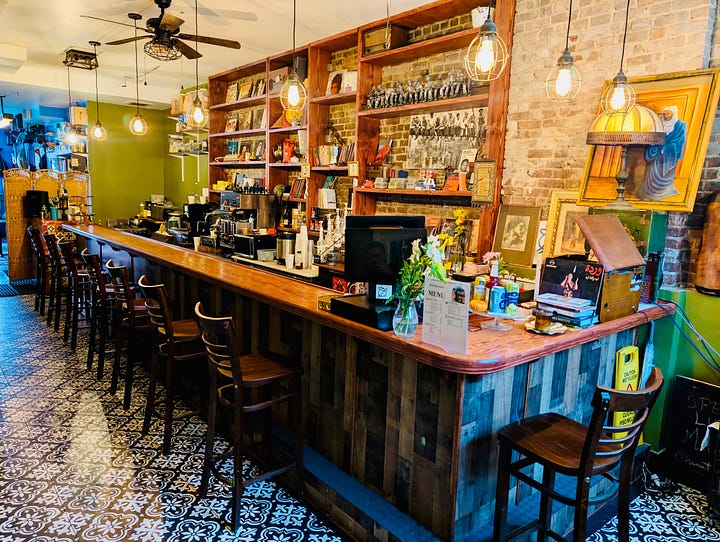
Barzakh Café represents El Atigh’s physical embodiment of his lifelong fight for freedom of thought and expression. It’s a place where the rich flavors of North Africa meet the dynamism of New York, where the boundaries between cultures blur, and where conversation is always on the menu.
If you find yourself in Brooklyn, visit Barzakh Café. You’ll savor not only the cuisine and live music but also the spirit of all those who gather—harnessing their shared experiences of hardship into a welcoming community, a home away from home, one cup of mint tea at a time.
Barzakh Café Artist Statement:
At Barzakh Café, we aim to create a sacred space where borders dissolve, and diverse cultural expressions come together to form a harmonious whole. Drawing inspiration from the Arabic term Barzakh—a realm where the spiritual and the earthly intersect—we envision our café as a bridge between worlds: past and present, East and West, tradition and innovation.
Our mission is to cultivate a vibrant community that celebrates creativity, dialogue, and connection. Through our curated events, ranging from live music and poetry to film screenings and art workshops, we seek to amplify voices that transcend boundaries and honor the rich tapestry of global traditions. Each performance, each gathering is a moment of exchange—a chance for our guests to encounter something both familiar and revelatory.
Barzakh Café is more than a venue; it is a living canvas. Its walls echo with the sounds of oud strings, flamenco heels, and Qawwali chants. Its tables hold the stories of strangers-turned-friends, sharing meals that fuse Middle Eastern soul with Brooklyn innovation. It is a place where art meets activism, where embroidery stitches a narrative of resistance, and where a single song can carry the weight of history and hope.
Our space thrives on the energy of its community—artists, musicians, thinkers, and dreamers—each contributing to the collective spirit of Barzakh. We invite you to join us, to linger in the in-between, and to discover the beauty that arises when we come together with open hearts and curious minds.
Here at Barzakh Café, art is not confined to the canvas or the stage; it is a way of life. It is the rhythm of connection, the melody of belonging, and the quiet stillness in the spaces we create together. Welcome to the in-between. Welcome to Barzakh.
This article was written by Reid Newton.

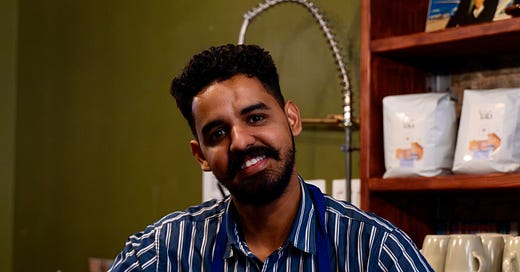



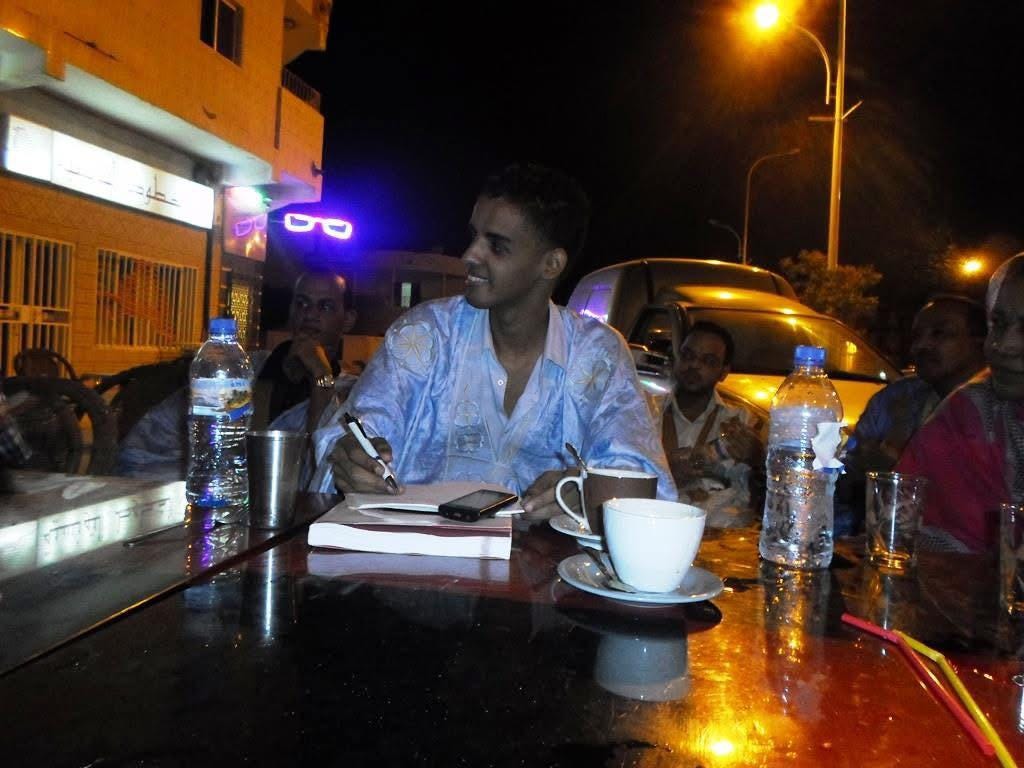
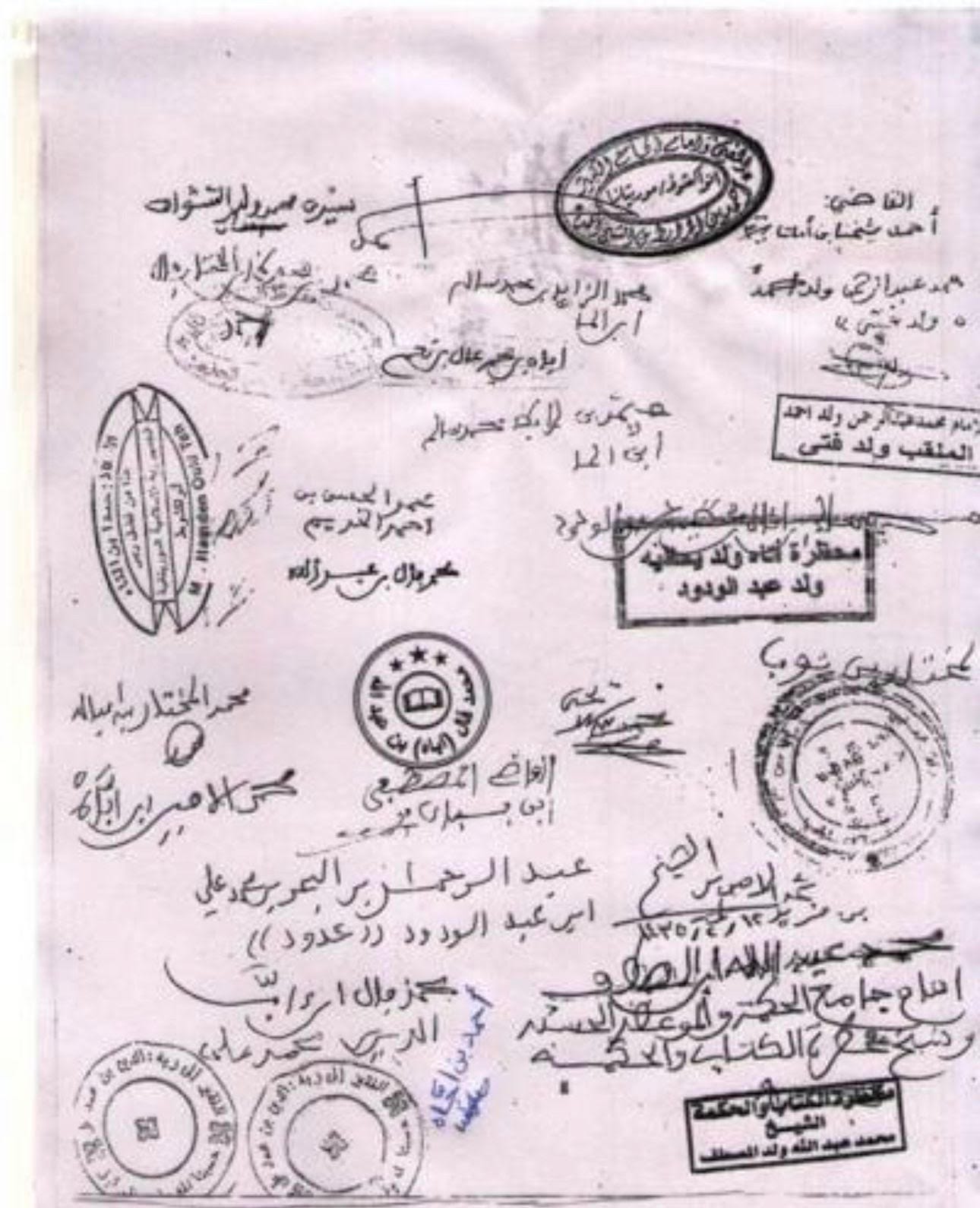
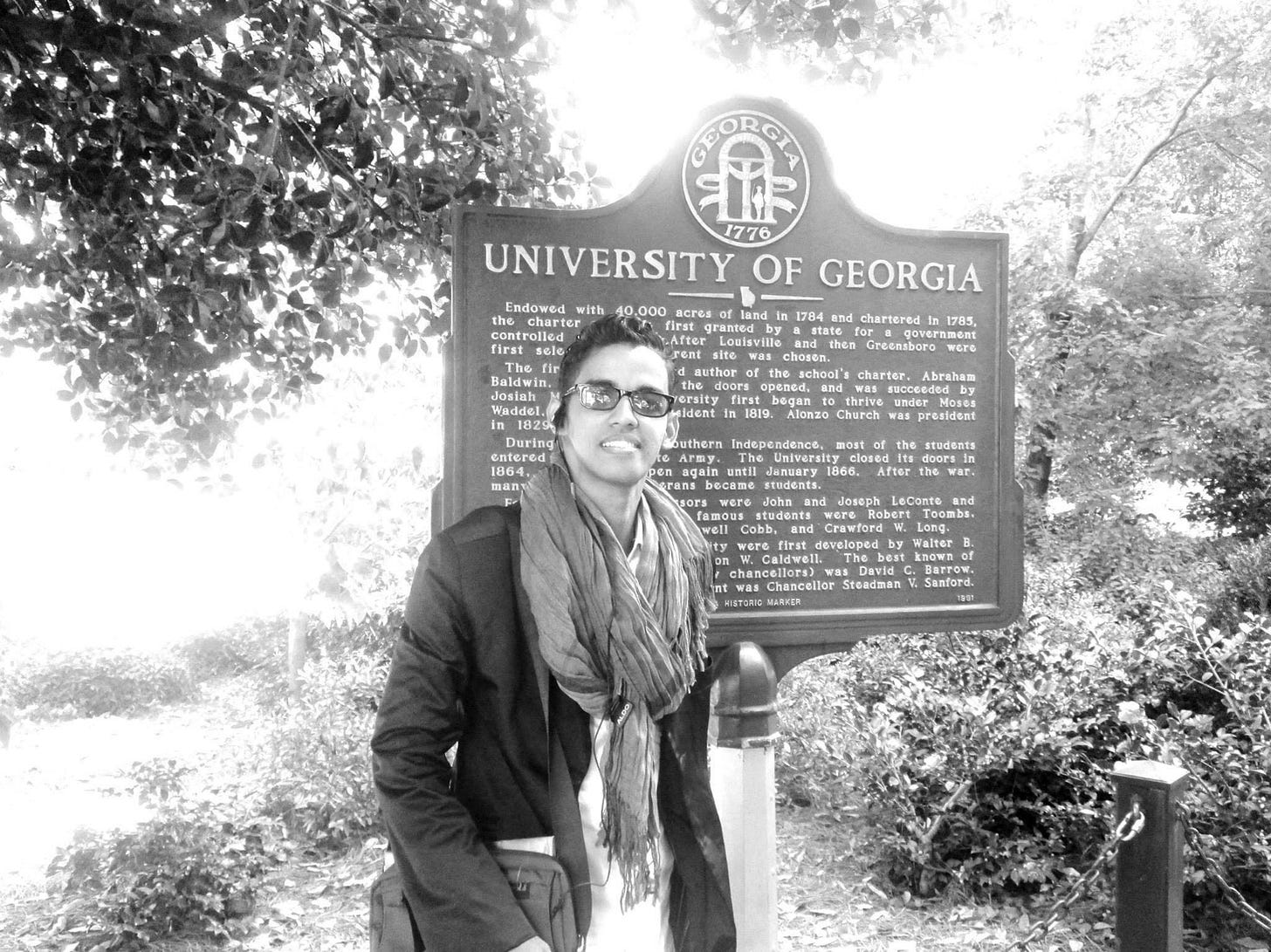
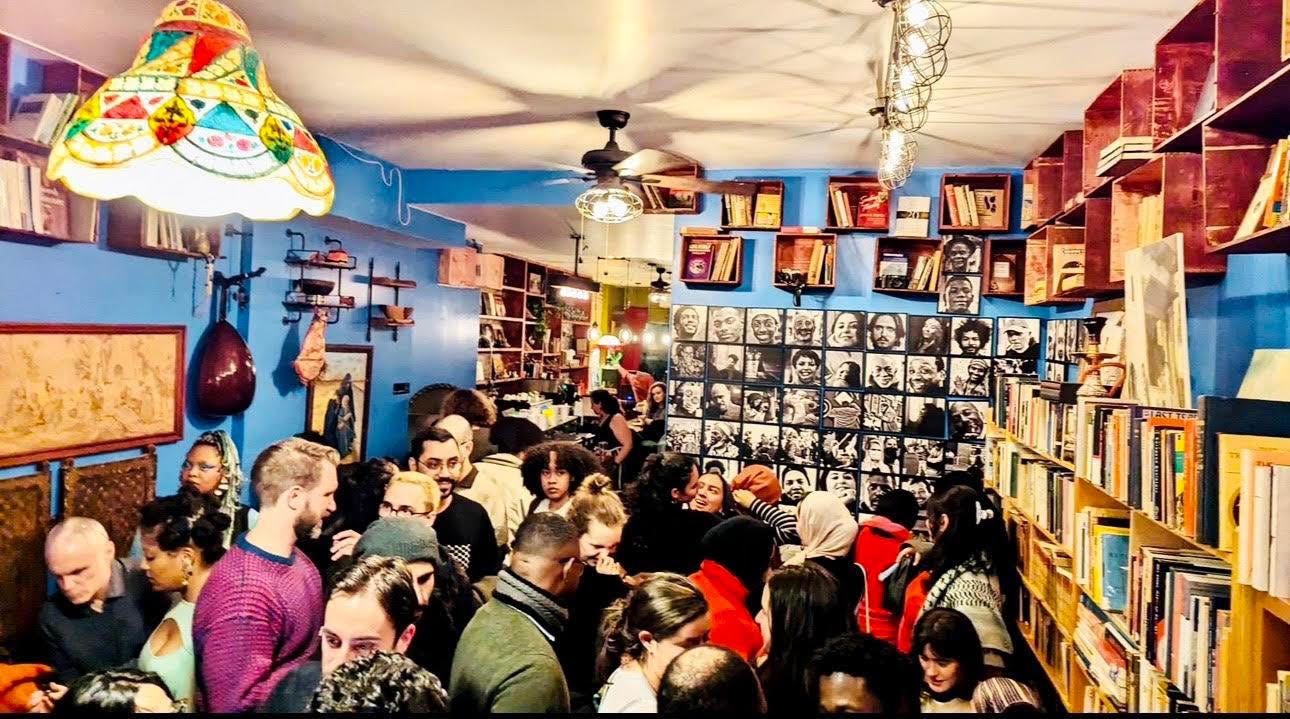
I JUST MET HIM LAST NIGHT ! 😍 It was my first time at Barzakh Café for the SuRF 🇸🇩 Social ☕️ Most beautiful café I've ever seen in my entire life 🏆 Incredible music as well 🎵 (Which is rare nowadays) Delicious Beverages, incredibly positive energy, breathtaking art and wonderful baristas... s/o Thomas! 🫶🏾 — Liza Dye